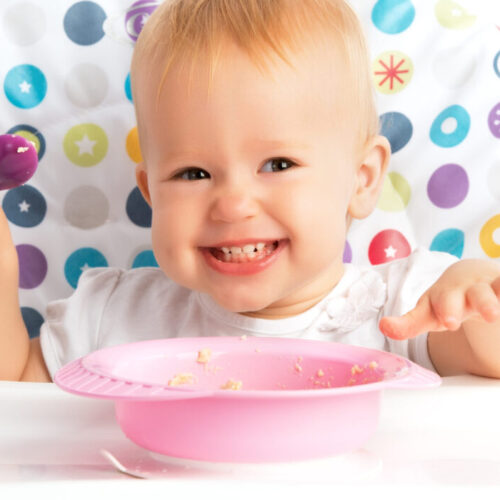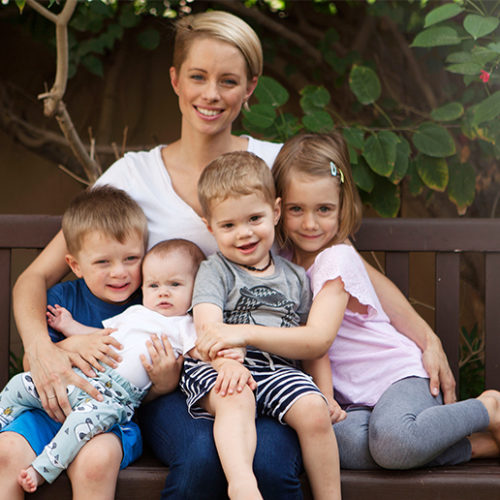How hugging can change your baby’s brain

We look at why early, gentle touch and affection has lasting effects on your child’s brain.
Welcoming a new baby into the world is an experience like no other – filled with love, awe and perhaps a bit of worry about getting everything just right. Among the many things you do for your baby, one of the simplest and most impactful is hugging them. It turns out, those warm, comforting embraces are not just heartwarming – they profoundly impact your baby’s brain development.
The science behind a hug
From the moment your baby is born, they’re wired to be ready to connect with the world through touch. This physical contact, especially in the form of hugs, shapes their brain development in ways that can last a lifetime. When you cuddle your newborn, their brain releases a hormone called oxytocin, also known as the ‘love hormone’. This magical chemical plays a massive role in helping your baby feel safe and loved, while also calming both of you down. The simple act of holding your baby close is fundamental for building trust and forming strong, healthy relationships later in life, as well as giving your baby the confidence to begin exploring the world around them in the present.
The groundwork for success
Hugging your baby isn’t just about the bonding, it’s also about helping them grow into emotionally resilient little humans. Newborns are incredibly sensitive to their environment, and physical contact gives them a sense of safety and stability. Every time you hold and comfort your baby, you’re helping to build their confidence, resilience and attachment. This is essential because babies who feel safe are more likely to explore, make friends easily and handle stress better as they grow. So, every time you give your baby a hug, you’re not just comforting them, you’re contributing to their emotional strength and ability to cope with the ups and downs of life.
Boosting the brain
While helping your baby feel emotionally secure is hugely important, the benefits of hugging extend to their cognitive development as well. The newborn brain is like a sponge, soaking up experiences and growing at an astonishing rate, with every sensory interaction shaping this growth. Research has shown that physical touch, like hugging, stimulates the parts of their brain associated with learning and memory. Hugs can help to reinforce these neural pathways, particularly those involved in sensory processing and understanding the world. This enhanced brain connectivity can lead to better cognitive abilities as your child grows. So, those hugs you give are not just comforting – they’re actively supporting your baby’s mental development.
Bonding and touch
Hugging your baby is also about building a deep, lasting bond between you and your little one, setting the tone for your dynamic together as your baby grows. Physical contact helps build trust and security, teaching your baby that you’re there for them when they need comfort.
Touch is a way of communicating with your little one that goes beyond words. Each hold and hug tells them that they are loved, safe and valued. This is especially important in those first few months when your baby can’t yet understand your words but can respond to the warmth and safety of your touch. By holding your baby close, your own brain releases oxytocin too, strengthening the emotional bond between you both.
Skin-to-skin contact
One of the most effective ways to harness the power of touch is through skin-to-skin contact, often known as kangaroo care. This practice involves holding your baby against your bare chest, allowing your skin to touch theirs. It has been shown to have numerous benefits, from stabilising your baby’s heart rate and breathing, to regulating their body temperature.
Babies who experience skin-to-skin contact often cry less, sleep better and gain weight more steadily, which is especially important for premature babies. Plus, it’s not just for mothers! Fathers and other caregivers get the opportunity to provide little ones with the same comforting experience that mothers do. The intimacy of skin-to-skin contact truly benefits everyone involved.
How often should you hug your baby?
You might wonder how much hugging is enough. The answer is as much as possible! Babies thrive on touch, and there’s no such thing as too many hugs. Every time you hold your baby, you’re helping to shape their brain and build a strong emotional connection.
It’s also important to remember that hugging isn’t just for newborns. As your baby grows, continuing to provide physical affection is still vital for their ongoing development. Hugs can help your child navigate new challenges, provide comfort during tough times and strengthen the bond you’ve already built. Regular cuddles can also help reduce any anxiety that might come up and increase feelings of security as your little one becomes more independent.
Hugging benefits the whole family
The benefits of hugging aren’t just for your baby – they’re for you too! Holding your baby close can help reduce stress and anxiety, making you feel more relaxed, calm and happy. When you hold your baby, your brain releases oxytocin, boosting your mood and making you feel more connected to your little one. Also, sharing in these moments of closeness can strengthen the relationship between you and your partner as you share in the joy of parenthood together.
In a world that often feels rushed and hectic, taking a few moments to hug and cuddle your baby can bring a sense of peace and connection that benefits the entire family. Whether you’re soothing your baby after a busy day or simply enjoying a quiet moment together, those hugs are building the foundation for a happy, healthy and connected family life.
It’s clear that hugging your baby is more than just a sweet gesture – it’s a powerful tool for supporting their developing brain and their emotional health. By making hugs and cuddles a regular part of your daily routine, you’re not only providing comfort in the moment, you’re also giving your child the best possible start in life. So, go ahead and embrace your little one, knowing that it’s making a difference that will last a lifetime.
Image Credit: ShutterStock











Comments